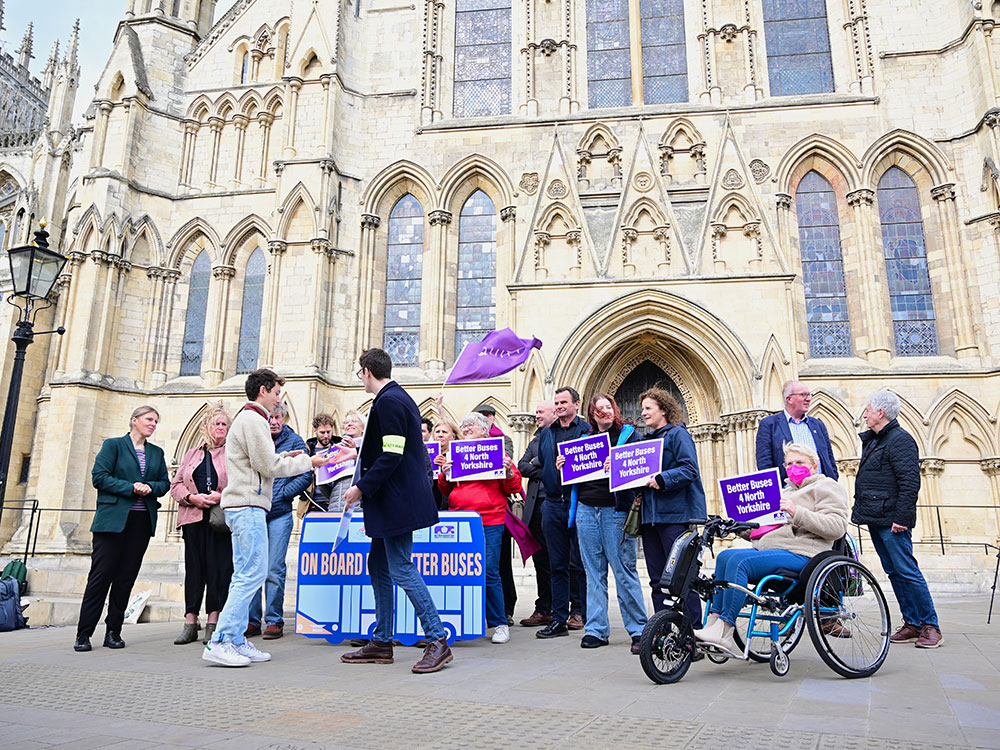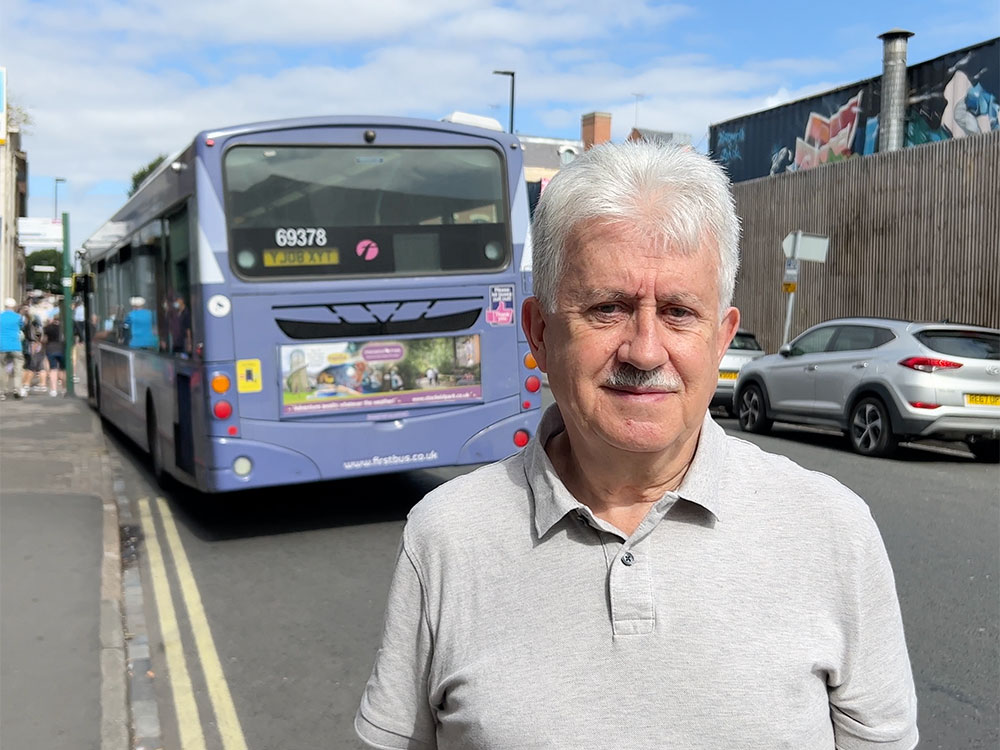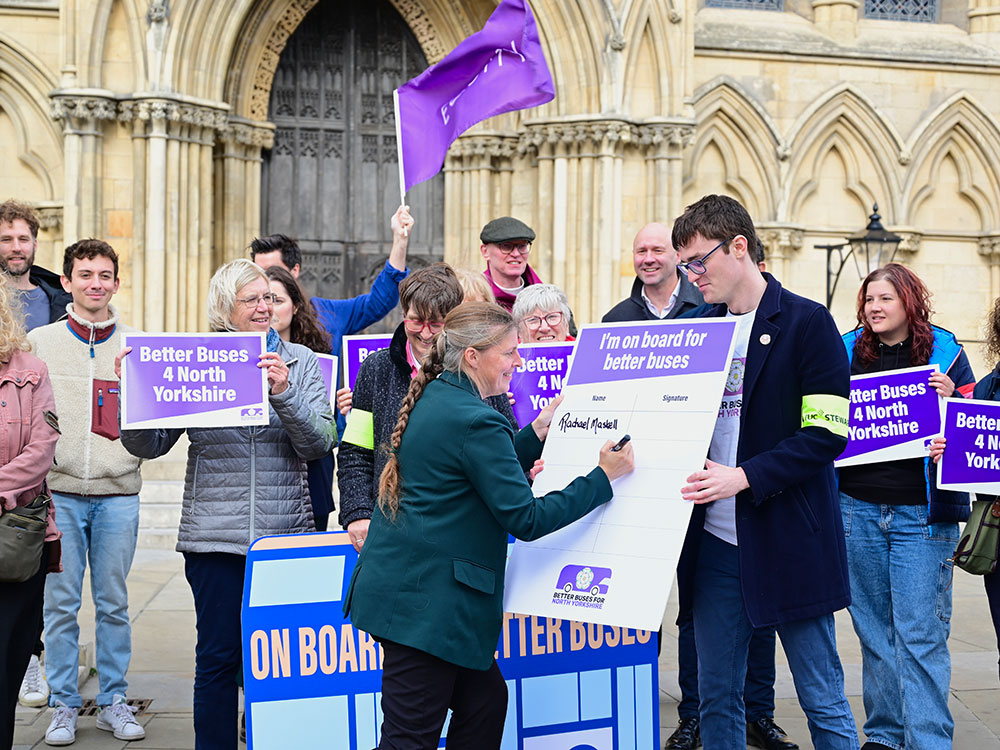The latest change to the way York’s buses are run will not provide the “radical” improvements needed to boost services, campaigners have said.
They met outside York Minster on Thursday to argue that bus services across York and North Yorkshire need to be brought back under local control.
Earlier in the day, City of York Council’s executive committee approved plans for an enhanced bus partnership with private providers in the city, which will unlock more than £17m in government funding to improve services.
Bus usage has fallen in most areas of the country in recent years – worsened by the impact of Covid. Rural North Yorkshire has been particularly badly hit.
Enhanced partnerships stop short of franchising – where a local authority can specify the services it wants from providers, including the routes and fares.
This option will be available if York and North Yorkshire agree to join a combined authority with an elected mayor in 2024 as part of the government’s devolution deal.
Matthew Topham, from the Trades Union Congress campaign for better buses, said enhanced partnerships were a “fudge that would not deliver the radical changes the public deserve”.
York Central MP Rachael Maskell said: “Bus companies need to wake up to reality and work with us from day one. Enhanced partnerships go so far, but they’re certainly not the full deal.”

York Labour group leader Cllr Claire Douglas said public control would create a better integrated, more cost effective system.
“At the moment, if you’re going into the outer regions of York or out into North Yorkshire, the price escalates massively,” she said.
York Labour’s transport spokesperson Cllr Rachel Melly added: “We need the primary purpose of buses to be passengers and people, not profit.
“Unless we bring them into public ownership, we’re not going to solve that problem, with or without an enhanced partnership.”
No silver bullet

But York Bus Forum (YBF) secretary Neil McFerran, also at the campaign launch, said franchising was not a silver bullet.
He added: “There is no easy answer. Simply saying, ‘well, in a few years time, you might have an elected mayor and he might want to franchise the service’ – that’s no solution.”
Cllr Stephen Fenton, Liberal Democrat, said he was keen to see how the council’s enhanced partnership worked, while keeping an eye on the franchising process in neighbouring areas like Manchester and West Yorkshire.
He added: “Are alternative systems delivering the kind of benefits we want to see? If so, we can learn from them. Our options are open and we can at some point in the future choose to change horses.”
During the council’s executive committee meeting, YBF chair Doreen Magill said she feared bus users would continue to be ignored under the enhanced partnership, which replaces the quality bus partnership before it, with operators making all the decisions.
“It looks like the same old, same old,” she said. “The decisions will be made in the exact same way they have in the past.”
York’s BSIP (bus service improvement plan) funding will be spent on upgrades to bus stops, shelters, real time screens, park and ride services and priority lanes, as well as cheaper fares for young people.
Executive member for transport Cllr D’Agorne said during the meeting: “The partnership gives the council the opportunity to work closely with bus operators and provide passengers with services based on local needs.
“We’re certainly committed to delivering bold action to deliver economic and social benefits, green jobs and improve wellbeing for York residents.”
[tptn_list limit=3 daily=1 hour_range=1]
